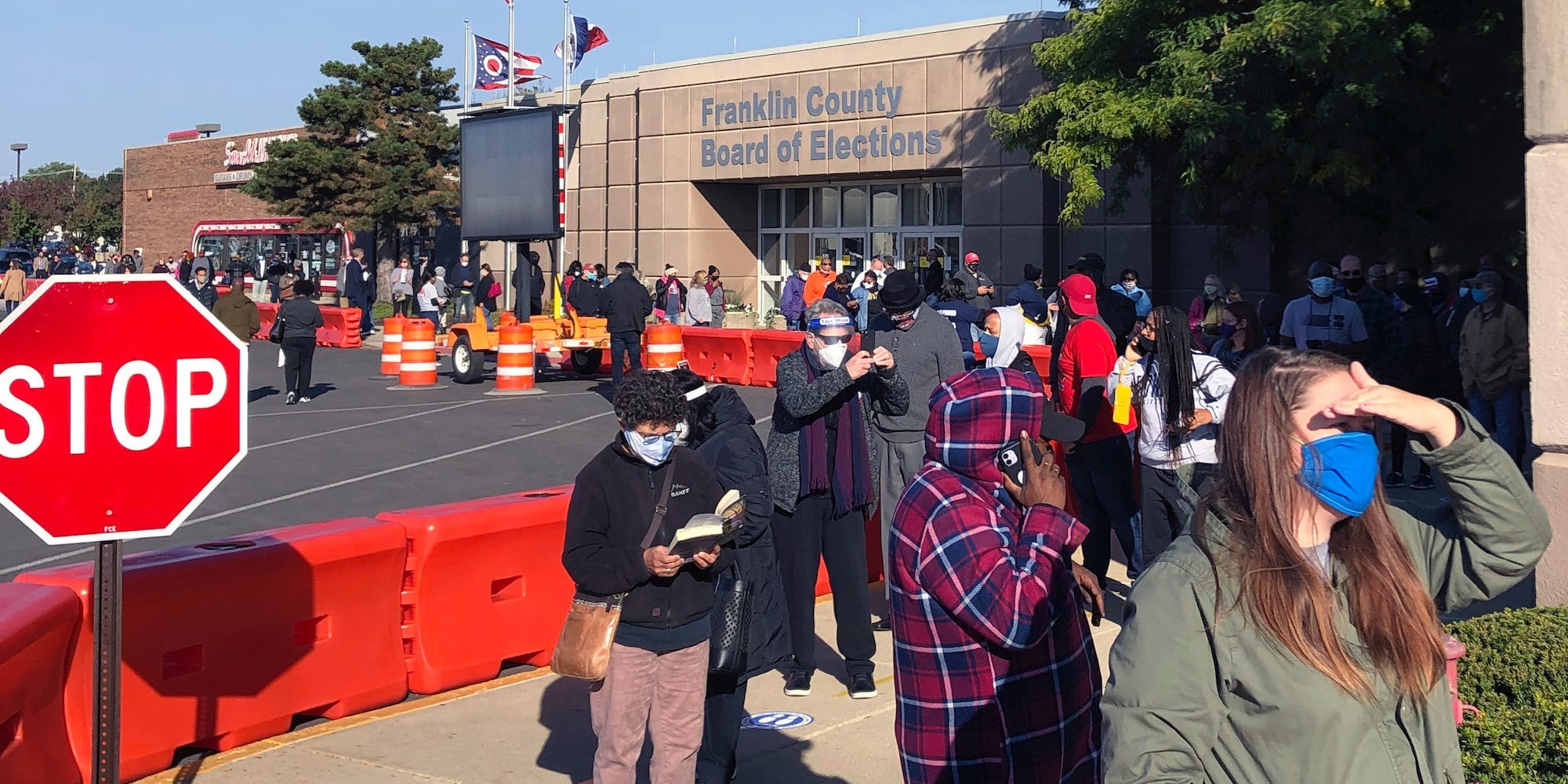
AP Photo/Julie Carr Smyth
- In 2020, 30 states legally require employers to give employees some time off to vote, either paid or unpaid.
- If you’re voting in-person on November 3 or voting early, be sure to both double-check your state’s specific laws and approve your time off with your employer well in advance.
- The last day of voting in the 2020 presidential election is coming up on November 3.
- Visit Business Insider’s homepage for more stories.
The last day of voting in the 2020 presidential election up on November 3. In 30 states and the District of Columbia, your employer is legally required to give you some time off to vote, according to analyses from Workplace Fairness and Replicon.
Due to the coronavirus pandemic, states made it easier than ever to vote from home with a mail-in ballot or early in-person prior to November 3. Thousands of employers have transitioned to all-remote work or expanding work from home options, making it more accessible for many to vote during work hours.
But there are still a small handful of states that either aren’t offering the option to all voters to vote by mail or do not offer in-person early voting. Mississippi falls in both categories, with the vast majority of the state’s voters only allowed to vote in-person on Election Day.
Laws around giving voters time off from work to go to the polls greatly vary by state, with many requiring employers to pay their employees for the time they take to vote, some limiting the number of hours or time of day that employers are required to give employees time off to vote, and North Dakota’s legal code encouraging but not technically requiring employers to give time off to vote.
If you’re voting in-person on November 3, be sure to both double-check your state’s specific laws and approve your time off with your employer in advance.
Some scholars, like University of Chicago behavioral scientist Sendhil Mullainathan, have argued that giving workers time off to vote isn't just a matter of convenience, but could be a key step to reducing barriers to the ballot box for low-wage service workers and voters of color, who often face more difficulties in efficiently voting in-person.
Voters of color face longer wait times to vote than white ones, a problem exacerbated by the pandemic as many polling places in cities have had to consolidate or move in the primaries. A study from the Brennan Center published earlier this summer found that Black voters wait 45 minutes longer and Latino voters wait 46 minutes longer to vote in-person on average than white voters.
While some state laws mandate employers to give time off to vote, a number of major companies and corporations are also doing so nationwide as a larger private-sector push to encourage civic participation among both employees and customers alike.
For years, socially conscious companies like Patagonia and Levi Strauss have made a point of giving their employees time off from work to vote and even closing stores on Election Day itself as a way of encouraging civic participation.
This year, over 1,800 big corporations and smaller businesses alike have committed to giving the employees the flexibility they need to vote this fall through the Time To Vote campaign.
Lauren Kunis, the program director of National Voter Registration Day, told Insider in September that the major uptick in corporations actively helping employees vote and even serve as poll workers is "very exciting."
"It wasn't as common of a feature of our electoral landscape as it is now," she said. "I think there's been a huge shift in norms and in expectations from the part of consumers, employees, and employees alike in terms of how companies and brands can and should do their part to strengthen our democracy and make sure that the voting public represents all of us."
In addition to giving employees time off to vote or making Election Day a company holiday, some big retail chains and tech companies like Facebook, Uber, Old Navy, Target, Tory Burch, and Warby Parker are also giving employees time off to serve as election workers. Many states and localities are facing shortages of available poll workers, who overwhelmingly tend to be older, retired Americans.
